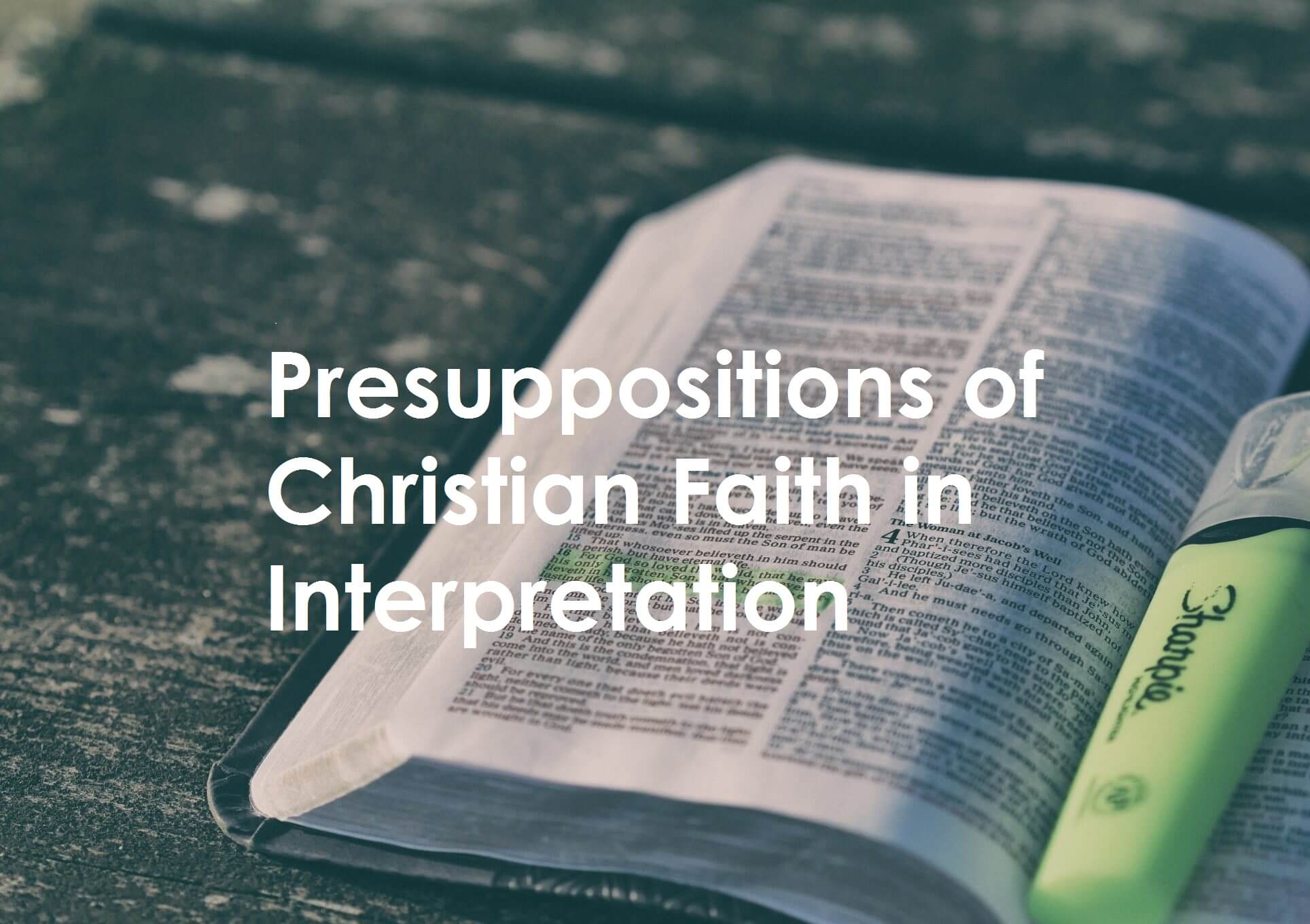Presuppositions of Christian Faith in Interpretation

Description
Presuppositions of Christian Faith in Interpretation
Assignment: Identify three key theological or spiritual presuppositions which you find in your own biblical hermeneutics. That is, describe three presuppositions which you bring to your reading (or hearing) of Scripture.Learning the history and intended meaning can help us understand scripture on a deeper level. However, Craig Keener says that a person's presuppositions, or what forms their world view is also important to a person's interpretation of scripture. Thus, if a person's worldview is broken, so will their interpretation of scripture. As Keener writes, "a fallen worldview becomes a lens that inevitably distorts reality." (Keener, Spirit Hermeneutics, 186) In other words, if you don't have the right foundation to view scripture, you're going to interpret it wrong. This is why determining the historical and biblical contexts is so important for those who study the bible. Keener looks at the topic of experiential presupposition in relationship to interpreting biblical text in that all who read scripture experientially will "engage the text more sympathetically and concretely." (Keener, Spirit Hermeneutics, 25). Keener speaks to reading the Bible from the vantage of the Pentecost, which means that while reading the Word, the reader reads scripture missionally, humbly and with an eschatological point of view. I appreciate how keener speaks about reading experientially, especially when he says "Getting to know God's heart in Scripture where it is clearest helps us hear his voice elsewhere as well." (Keener, Spirit Hermeneutics, 41). Three Presuppositions: Presuppositions are things that we silently assume before reading scripture. As a person who grew up in the church, there are beliefs about God that have been ingrained in me from a young age. These beliefs are the things that have shaped the lens through which I view scripture. One of my presuppositions is that the holy scriptures are inspired by God. That is, God divinely inspired the 66 authors to write about true events as God instructed them. As is says in 2 Timothy 3:16, “All scripture is breathed out by God and profitable for teaching, for reproof, for correction, and for training in righteousness.” This means when I study the Bible, I read it as truth, and it has authority in my life. It is not just a guide book, but I believe God speaks through the text. Another presupposition I bring to the reading of the word is that God is sovereign, which means He rules over everything. This means that everything that is taught in the Bible happens because God is a powerful God. Ephesians 3:20 speaks to God’s sovereignty. “Now to Him who is able to do far more abundantly beyond all that we ask or think, according to the power that works within us.” This is important because I view scripture and believe that God has the power to change lives through the truths that are evident within the Bible. We are able to dream big about God because His is a mighty and powerful God. While there are many other presuppositions I could mention, the third I’d like to write about is that Jesus is the Son of God. As it says in John 1:14, The Word became flesh and made his dwelling among us. We have seen his glory, the glory of the one and only Son, who came from the Father, full of grace and truth.” Jesus was born to the virgin Mary, and was truly the Son of God who came to Earth to live a perfect life and die on the cross. This is import because if Jesus were not the Son of God, then his death on the cross for the sins of the world and the teachings throughout the entire Bible would be a good story, but would not change lives. These are foundational views and beliefs which shape how I view scripture, how I interpret it, and ultimately teach it to others
Info

